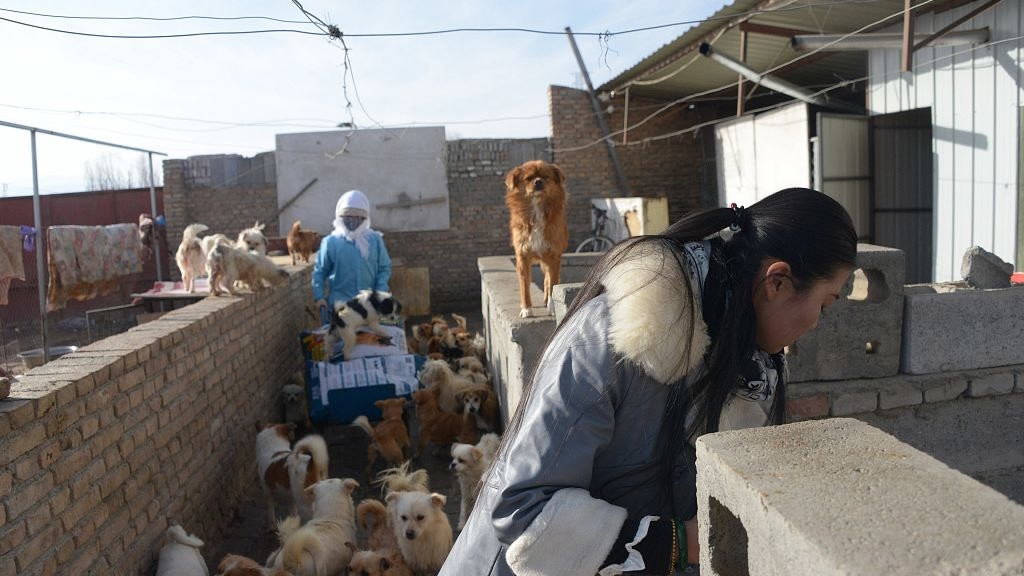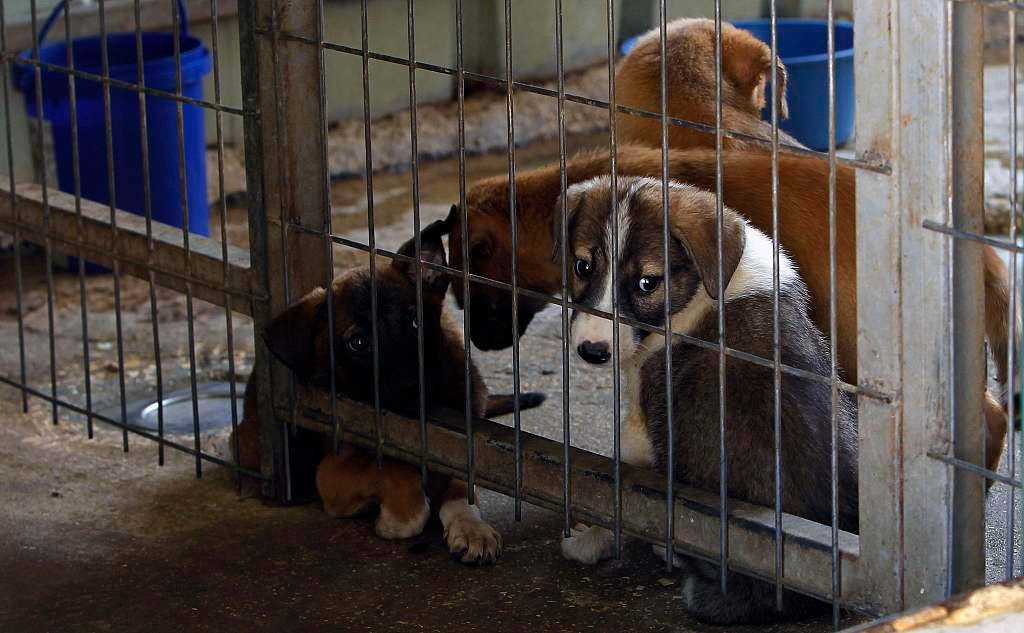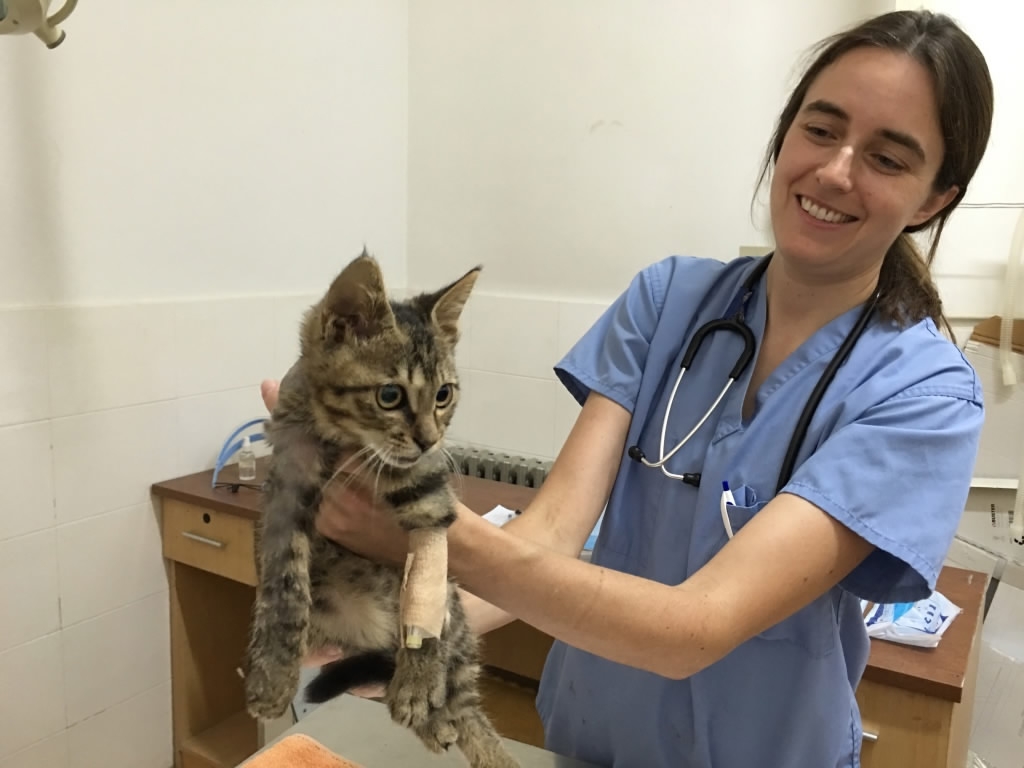
China
11:20, 23-Jan-2018
Puppy love: China faces pet adoption crisis
Nick Yates

China is facing a spike in the number of pets being abandoned and relinquished, adoption and animal rescue specialists have warned.
Owning pets has become more popular among the country’s growing middle class but with that growing numbers of animals are being put up for adoption, often when owners relocate to a new city or abroad and find it too difficult and expensive to take their dogs or cats with them.
Another significant factor, according to specialists, is urban redevelopment and relocation of communities as the pace of urbanization and modernization picks up.
Many residents are giving up their pets when they move, and stray animals living on dormant building sites need to be rounded up when these developments are ready for completion.
Beijing has seen a lot of inferior and illegal housing marked for demolition recently, with residents often required to move out en masse and at short notice. It is easy to see how pets get left behind in situations like this.
Export challenge

Mary Peng, head of the International Center for Veterinary Services, reports a 30-percent spike in the number of pet relinquishments. /Gilles Sabrie
Mary Peng, head of the International Center for Veterinary Services, reports a 30-percent spike in the number of pet relinquishments. /Gilles Sabrie
The Beijing-based International Center for Veterinary Services (ICVS) helps 2,000 families a year prepare for exporting their pets from China. The company’s CEO Mary Peng said she has seen a 30-percent increase in the past year in the number of people deciding not to take their pets after finding out what is involved or not having enough time to prepare before their departure date.
There are several steps to moving a pet internationally. A period of quarantine is required by customs in some countries. The whole process for EU countries can take from four to six months and can easily cost 10,000-20,000 yuan (around 1,500-3,000 US dollars) in cases where the destination country requires the animals to be sent as manifest air cargo, according to Peng.
This has long been the case, but what has changed is how poorly informed people are about the requirements, Peng said.
She sees more and more foreigners coming to Chinese cities independently rather than being brought here by big international companies. This leaves them without HR support and local connections that would have kept them informed on everything to do with their move.
Relinquishments peak at certain times of the year, including the beginning of the year when many employment contracts expire. Many expats are hired for a calendar year, while local contracts often expire before Chinese New Year.
‘Always strays left behind’

A lot of pets get left behind during urban redevelopments. /VCG Photo
A lot of pets get left behind during urban redevelopments. /VCG Photo
With pet ownership a relatively new phenomenon in China, locals are often less attached to their pets than some foreigners are.
“Most Chinese have pets as a toy rather than as a family member,” said Kiki Chen, China manager at WorldCare Pet Transport, which organizes pet relocations worldwide.
“When a village needs to move, local people will leave their pets behind, not wanting to take their pets to their new homes,” she said. “Most of them will move to apartments, and they think dogs and cats are not clean.”
Christopher Barden, founder and CEO of Beijing dog rescue organization Little Adoption Shop, deals with a lot of such mass abandonments.
“When an area has been demolished, there are always strays left behind,” he said.
“There may be people who show up to catch the dogs who want to eat them. The police might be called and through no fault of their own, they’re not equipped to deal with the situation.”
Little Adoption Shop specializes in such “difficult urban rescues” and provides shelter to hundreds of dogs looking for new homes.
Purebred preference

ICVS also deals with a lot of cats for adoption. /ICVS
ICVS also deals with a lot of cats for adoption. /ICVS
Finding people willing to adopt can be difficult. Lots of rescued dogs are in poor condition physically and psychologically and are unattractive to casual pet owners.
Chen estimates that only one out of 100 new pets in China is adopted, with Chinese preferring pedigree animals. Most of the adoption candidates at Little Adoption Shop and ICVS are mixed-breed, on the other hand.
While some are happy to give up their pets, there are plenty of people in China lavishing attention on their furry friends.
Chinese shoppers will spend 46.3 billion yuan on their pets by 2022, up from 17.5 billion yuan in 2017 as the market grows at around an annual 20 percent, Euromonitor forecasts.
According to Forbes citing the country’s National Bureau of Statistics, China is third in the world for dog ownership, behind the US (55.3 million) and Brazil (35.7 million), with a total of 27.4 million pet dogs as of 2016.
China is also second in global cat ownership, with 58.1 million cats reported, versus 80.6 million in the US.

SITEMAP
Copyright © 2018 CGTN. Beijing ICP prepared NO.16065310-3
Copyright © 2018 CGTN. Beijing ICP prepared NO.16065310-3